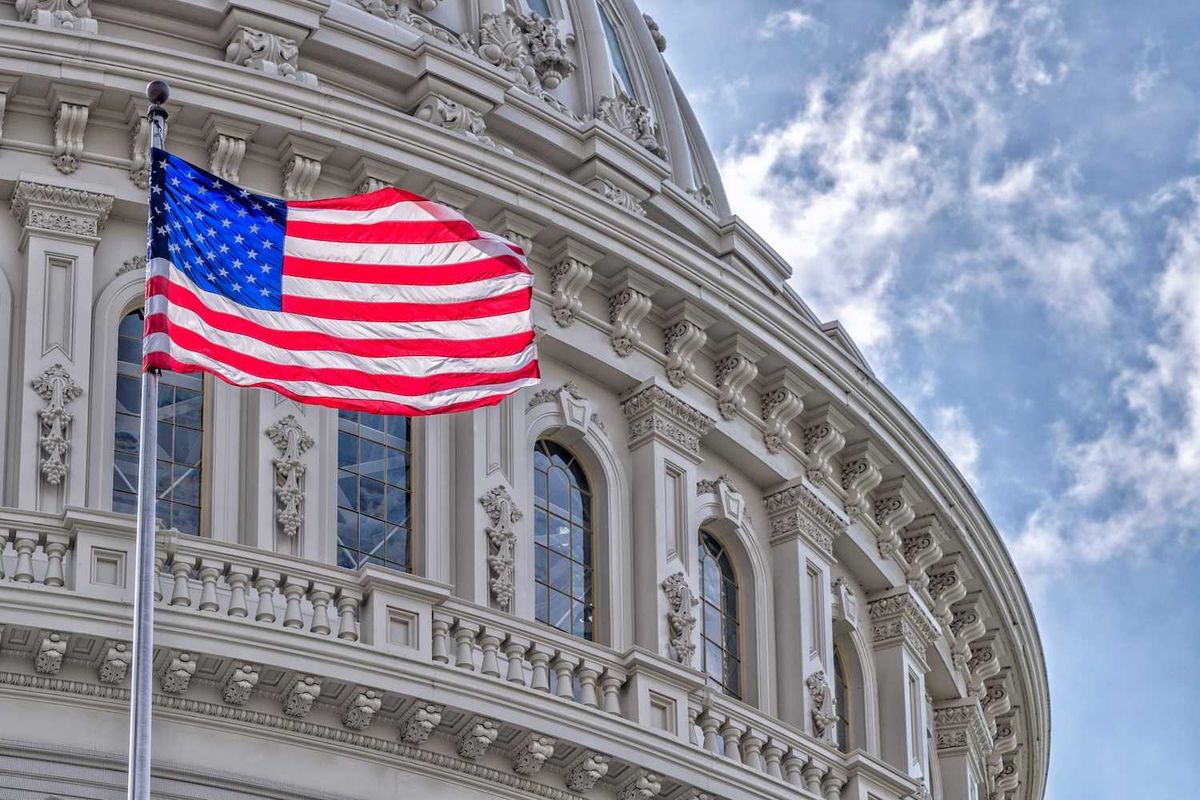Senate Rebukes Trump Again, Votes to End National Emergency Tariffs on Canada
The measure, however, is unlikely to take effect as the Republican-controlled House has barred votes on tariff-related resolutions until March 2026.

The US Senate voted on Wednesday (October 29) to terminate the national emergency President Donald Trump invoked to impose steep tariffs on Canadian imports.
The move markst the chamber’s second bipartisan rebuke of Trump’s trade policies in as many days.
The resolution passed 50 to 46, with four Republicans — Mitch McConnell and Rand Paul of Kentucky, Susan Collins of Maine and Lisa Murkowski of Alaska — joining Democrats in support.
The Senate’s move follows a similar vote on Tuesday (October 28) to block tariffs on Brazilian goods.
"President Trump has stretched this notion of emergency far beyond the language of the statute,” Senator Tim Kaine of Virginia emphasized in a floor speech ahead of the vote.
“If President Trump can name anything as an emergency, so can any president henceforth.”
Kaine’s resolution targets the 25 percent tariffs Trump first imposed on Canadian goods in February under the International Emergency Economic Powers Act. Trump justified the move by claiming Canada was failing to stop the flow of fentanyl across the northern border, a rationale that Kaine and others called “absurd.”
“It is ridiculous to say that fentanyl is an emergency with respect to Canada,” Kaine said, adding, “It’s a pretext that’s just being used to pour more and more tariffs onto Canada.” According to US Customs and Border Protection, less than 1 percent of fentanyl seizures this year occurred along the northern border, amounting to only 66 pounds in total.
Trump later escalated the tariffs to 35 percent in August and threatened to raise them another 10 percent last week, following a spat over a televised advertisement by Ontario’s provincial government.
The ad featured a 1987 clip of former President Ronald Reagan warning that tariffs “lead to retaliation and shrinking markets” — a message Trump dismissed as “fake.” The president also abruptly canceled trade negotiations with Canadian officials over the ad, prompting sharp criticism from lawmakers in both parties.
“The economic harms of trade wars are not the exception to history, but the rule,” McConnell said. “Tariffs make both building and buying in America more expensive. And no cross-eyed reading of Reagan will reveal otherwise.”
Collins, whose home state borders Canada, said her vote reflected both economic and practical concerns.
“I’ve seen firsthand the damage that the Canadian tariffs have caused,” she said on Tuesday. “The Canadians have worked very hard to try to stem the flow of drugs into this country, and the vast majority of drugs arrive from the southern border, not the northern border. So I don’t think the basis for imposing tariffs on Canada is a valid one.”
The trade rift has also spilled into the private sector, where Canadian exporters are scrambling to manage rising costs and tighter margins. With tariffs adding pressure to cross-border transactions, many businesses have turned to their banks for foreign exchange, only to encounter delays and high fees.
“An estimated 85 percent of small and medium-sized businesses in Canada use their bank because of the convenience, and frankly, because they aren't aware of any other solution,” said Alfred Nader, CEO of fintech firm Mark Lane.
Impact on further negotiations
Prime Minister Mark Carney has expressed willingness to resume negotiations, saying that discussions on steel, aluminum and energy tariffs were making progress before talks collapsed.
While Trump has expressed his view that he thinks he will not be meeting with the prime minister “for a while,” the POTUS told reporters that he shared "a very nice conversation" with Carney over a recent APEC dinner.
Trump’s tariffs have strained one of the world’s largest trading relationships.
According to the Office of the US Trade Representative, US-Canada trade totaled US$909 billion in 2024, with nearly US$3.6 billion in goods and services crossing the border daily. More than three-quarters of Canada’s exports go to the US, and the Canadian economy has been heavily impacted by the new duties.
Wednesday’s vote took place while Trump was in Asia pursuing other trade negotiations.
However, his ongoing confrontation with Canada continues to loom large over US trade relations, with another Senate vote expected Thursday on a resolution to block the president’s global tariff powers.
The House, meanwhile, remains a dead end for any such effort. Republican leaders there have employed a procedural rule to prevent consideration of any resolutions overturning Trump’s trade actions until 2026, ensuring that even bipartisan opposition in the Senate will have little immediate effect.
Still, Kaine and other Democrats say that growing dissent within Republican ranks signals shifting attitudes.
“It will become untenable for them to just close their eyes and say, ‘I’m signing up for whatever the president wants to do,'" Kaine said.
Don’t forget to follow us @INN_Resource for real-time updates!
Securities Disclosure: I, Giann Liguid, hold no direct investment interest in any company mentioned in this article.
- Global Outcry Mounts Over Trump’s Tariff Blitz Ahead of Deadline ›
- Copper Soars to All-time High as Trump Unveils 50 Percent Tariff on Imports ›
- Appeals Court Grants Trump Temporary Reprieve on Tariffs, "TACO" Taunts Gain Steam ›
- Trump's Sweeping Tariffs Ignite Global Trade War, Drawing Strong Backlash ›
- Trump's Tariffs Disrupting North American Critical Minerals Supply Chains ›
